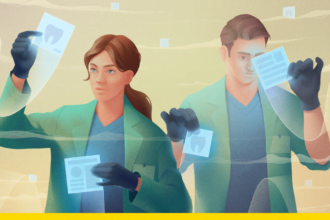I originally shared this post on October 27th as an announcement to the 13,000+ members of my Digital Health group&nb
I originally shared this post on October 27th as an announcement to the 13,000+ members of my Digital Health group on LinkedIn. We hope you’ll find the information interesting and helpful.
Recently, I watched the documentary film “Escape Fire: The Fight to Rescue American Healthcare.” The film poignantly shows a healthcare system designed for quick fixes rather than prevention, for profit-driven care rather than patient-driven care. I highly recommend it: http://www.escapefiremovie.com/
Nutrition is prominently featured as part of the emphasis on the need for disease prevention. Dr. Andrew Weil and Dr. Dean Cornish discuss lifestyle diseases. And while Dr. Cornish has demonstrated outcomes of his prescribed exercise and diet regimen in partially reversing heart disease, it is still unclear as to what the “best” nutrition profile is for disease prevention and the lifestyle factors leading to certain diseases. I’d note that since we are all genetically unique, “best” could be different for each of us. Nonetheless, there are some nutritional choices that apply at the population level.
In a 2002 New York Times article, “What if everything you’ve been told is wrong?”, Gary Taubes challenges the collective recommendations of the American medical establishment to eat less fat and more carbohydrates and asks if these are actually fueling the epidemic of obesity in America. In partnership with Dr. Peter Attia, Taubes recently formed the Nutrition Science Initiative (NuSI) in San Diego. (Dr. Marty Makary is an advisor: http://lnkd.in/gi9SG6). As described on the NuSI website, current dietary guidelines are not based on rigorous science and the medical research establishment has failed to provide definitive, unambiguous answers to unresolved questions of diet and health. Despite billions of dollars spent on medical research, the definitive experiments have never been done. (Scary!)
I recently spoke with Larry Smarr, who has attained a high profile in the self-tracking/Quantified Self movement. Smarr, founding director of the California Institute for Telecommunications and Information Technology (Calit2) at the University of San Diego (UCSD), was recently profiled in The Atlantic: http://bit.ly/ScPUrV. During our chat, I discovered that Smarr and I share a lot in common regarding our dietary choices. To a large extent, I’m following the Paleolithic diet, http://bit.ly/TBHlUu, while Smarr follows the Zone Diet, created by biochemist Barry Sears: http://bit.ly/QARHFR. The two are not mutually exclusive, but Paleo focuses more on quality while the Zone focuses on quantity.
Another person whom I’ve been following is Dave Asprey, a bio-hacker who takes self-quantification to the extreme: https://twitter.com/bulletproofexec
While I’m barely self-tracking, I estimate that I’ve lost about 20 pounds in just a few months based exclusively on my nutrition/lifestyle choice.
Escape Fire ends with these two sentences:
WE CAN CHANGE OUR HEALTHCARE SYSTEM
BUT NOT UNTIL WE CHANGE THE CONVERSATION
It’s safe to say that all of us are aware that we need to change our healthcare system. As the case studies in the movie illustrate, once we change the conversation, everything is possible. Along the same lines, I tell new [Digital Health] group members that their membership alone will help catalyze the digital transformation of health. In addition to the work being done, discussion and knowledge sharing are equally critical since we’re all change agents in our own way.
What do you feel are the overlaps between digital technologies, nutrition, and disease prevention? What can be done to advance nutrition science? How can we improve consumer and professional education and knowledge dissemination on these subjects? I look forward to hearing your thoughts.





